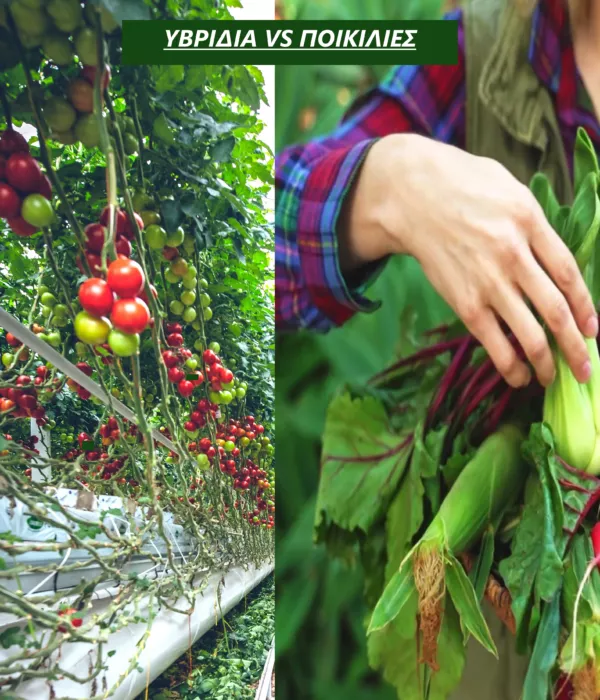Blog
HYBRIDS VS VARIETIES Is it really a battle or a necessary coexistence?
HYBRIDS VS VARIETIES
Is it really a battle or a necessary coexistence?
The debate between hybrids and varieties in agriculture is a topic that sparks discussions among both amateur gardeners and professional farmers.
But is it really a “battle,” or just a necessary coexistence?
Is there an overall better or worse choice?
We present the facts so you can draw your own conclusions.
Hybrids
Hybrids (F1) are the result of controlled crossbreeding between two parent plants with specific characteristics. Hybrids are an excellent choice when high yield and product uniformity are desired. They are suitable for intensive cultivation where specific requirements must be met, such as precise harvest dates, maximized production, and standardized fruit shape, color, or size.
Additionally, hybrids are resistant to various diseases and perform well under intensive farming conditions. They are ideal for large commercial markets that demand consistent and uniform products.
Overall, hybrids offer reliability and predictability in production, making them the best choice for professional growers aiming for high yields and specific quality traits.
Varieties
Common vegetable seeds cover a wide range of plant varieties. They are ideal when strict specifications for the final product are not required. For instance, when specific harvest dates, fruit shape, color, or size are not necessary.
Varieties are a cost-effective option for professional farmers looking to reduce production costs, as well as for amateur gardeners. These seeds do not require high inputs such as specialized fertilizers or expensive agricultural resources, making them particularly attractive for low-cost cultivation.
Furthermore, they produce fruits with exceptional flavor and high nutritional value, making them ideal for markets that prioritize taste and quality. Their fruits are popular in local food markets and restaurants that focus on fresh ingredients. They are also widely used in gastronomic events where quality is paramount.
At the same time, these varieties are suitable for farms participating in agricultural biodiversity conservation programs. Choosing them supports the sustainability of agricultural ecosystems and ensures the preservation of genetic diversity—a key factor for crop resilience, especially in the face of climate and environmental challenges.
Cultivating certified common vegetable seeds provides farmers with low-cost solutions while maintaining excellent flavor and nutritional value.
With the growing demand for authentic, local products, these varieties fully meet consumer needs.
Overall, they are an excellent choice for those who value taste and quality.
Greek Traditional Vegetable Seed Varieties
These are closely linked to biodiversity and organic farming principles. They maintain consumers’ connection to the authentic flavors of the past, offering significant cultural and gastronomic value.
The preservation and support of Greek Traditional Varieties is an act of responsibility for the future.






